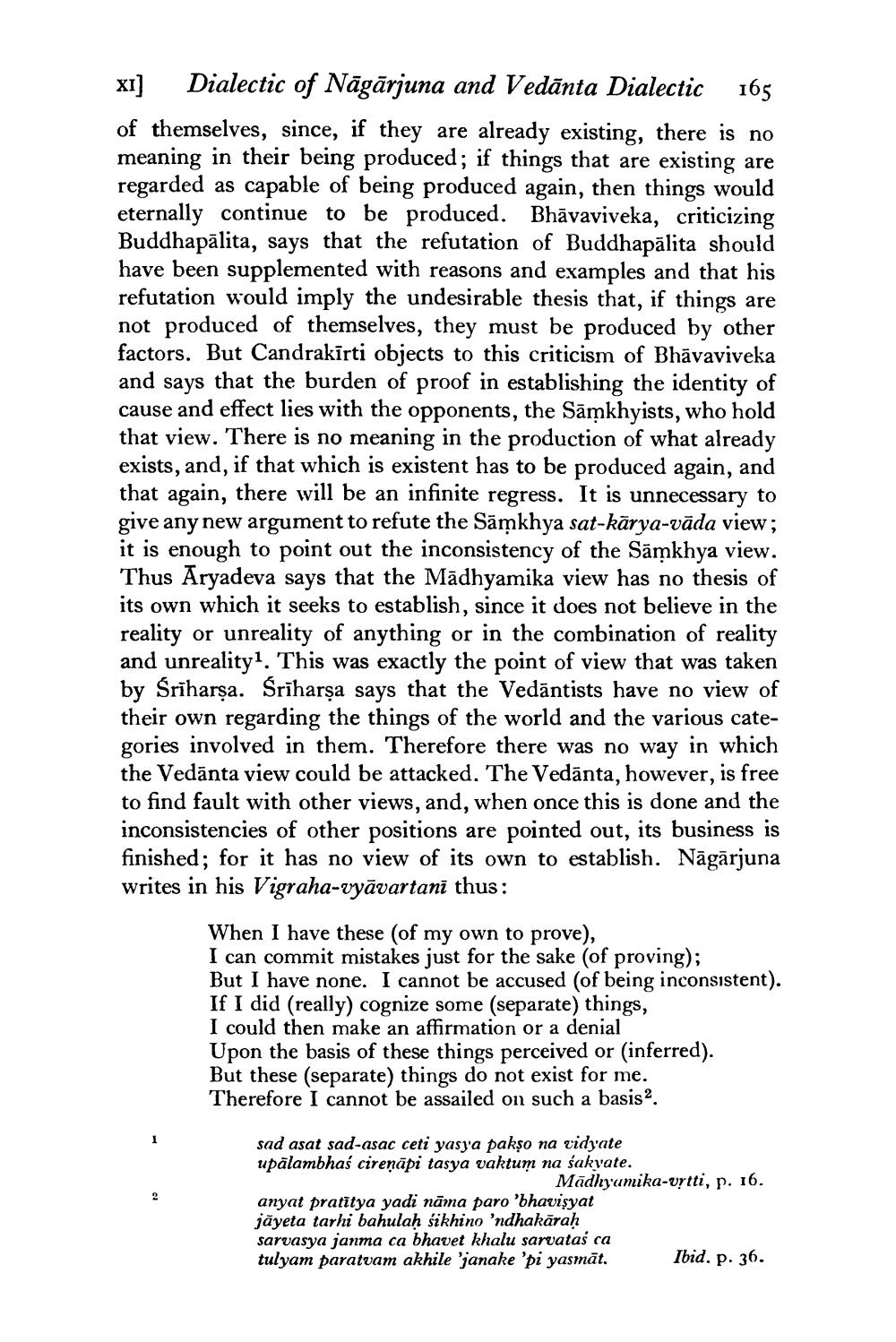________________
XI] Dialectic of Nagarjuna and Vedanta Dialectic
165
of themselves, since, if they are already existing, there is no meaning in their being produced; if things that are existing are regarded as capable of being produced again, then things would eternally continue to be produced. Bhāvaviveka, criticizing Buddhapalita, says that the refutation of Buddhapalita should have been supplemented with reasons and examples and that his refutation would imply the undesirable thesis that, if things are not produced of themselves, they must be produced by other factors. But Candrakīrti objects to this criticism of Bhāvaviveka and says that the burden of proof in establishing the identity of cause and effect lies with the opponents, the Samkhyists, who hold that view. There is no meaning in the production of what already exists, and, if that which is existent has to be produced again, and that again, there will be an infinite regress. It is unnecessary to give any new argument to refute the Samkhya sat-kārya-vāda view; it is enough to point out the inconsistency of the Samkhya view. Thus Aryadeva says that the Madhyamika view has no thesis of its own which it seeks to establish, since it does not believe in the reality or unreality of anything or in the combination of reality and unreality1. This was exactly the point of view that was taken by Sriharṣa. Sriharṣa says that the Vedantists have no view of their own regarding the things of the world and the various categories involved in them. Therefore there was no way in which the Vedanta view could be attacked. The Vedanta, however, is free to find fault with other views, and, when once this is done and the inconsistencies of other positions are pointed out, its business is finished; for it has no view of its own to establish. Nāgārjuna writes in his Vigraha-vyāvartani thus:
2
When I have these (of my own to prove),
I can commit mistakes just for the sake (of proving);
But I have none. I cannot be accused (of being inconsistent).
If I did (really) cognize some (separate) things,
I could then make an affirmation or a denial
Upon the basis of these things perceived or (inferred). But these (separate) things do not exist for me. Therefore I cannot be assailed on such a basis2.
sad asat sad-asac ceti yasya pakṣo na vidyate upālambhaś cireṇāpi tasya vaktum na śakyate.
Madhyamika-vṛtti, p. 16.
anyat pratitya yadi nama paro 'bhavisyat jayeta tarhi bahulaḥ śikhino 'ndhakāraḥ sarvasya janma ca bhavet khalu sarvatas ca tulyam paratvam akhile 'janake 'pi yasmāt.
Ibid. p. 36.




